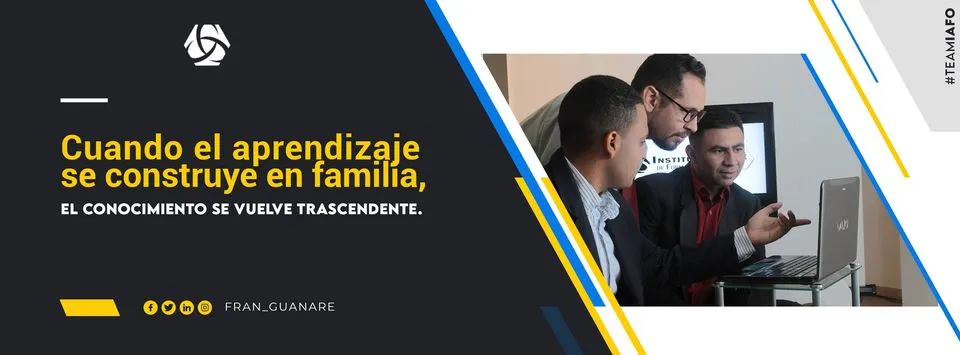La virtualidad nos ha venido exponiendo a una tormenta indomable de información, mensajes e ideas, las cuales llegan a abrumarnos, sobre todo al momento de comunicar, de allí que aprender a discernir lo verdadero de lo falso es una necesidad imperiosa.
En el libro El octavo sentido de José Antonio Llorente se afirma que:
El octavo sentido de los seres humanos discrimina la verdad de la mentira con una capacidad de discernimiento extraordinaria y constante.
Esta capacidad que podemos considerar más que una simple habilidad cognitiva, la desarrollamos a lo largo de la vida. Por ejemplo, de niños aprendemos a detectar la mentira a través de nuestras interacciones con los demás y observando cómo los adultos reaccionan a la mentira y aprenden a asociar ciertas señales con la falsedad. Esta capacidad se agudiza con la experiencia.
Ahora bien, si el contacto con otros nos va ayudando a perfeccionar esta habilidad, pensemos en quienes tenemos que tratar con mentiras con frecuencia, ya sean funcionarios de seguridad o de justicia, los cuales suelen desarrollar una mayor sensibilidad para detectarlas.
Sin embargo, en la sociedad de la conversación el "octavo sentido" se agudiza porque la virtualidad así nos lo demanda. En palabras del prenombrado autor:
Mi experiencia profesional y personal me lleva a la convicción de que los hombres y mujeres de nuestro tiempo han adquirido un sentido nuevo y añadido a los tradicionales de los seres humanos. Lo denomino, quizá con cierta discrecionalidad, el octavo sentido y va más allá de los físicos vista, oído, tacto, gusto, olfato, más allá, asimismo, del que ha dado en denominarse el sexto "que sería el sentido intuitivo" y también más allá del séptimo que consistiría en la capacidad extrasensorial humana. Ese octavo sentido remitiría a la irrefrenable necesidad de las personas de comunicarse con la habilidad de ser entendidas por las demás y crearse así una entidad propia en el colectivo en el que se desenvuelven.
Es decir, la virtualidad nos permite comunicarnos con personas de todo el mundo, lo que nos expone a una gran cantidad de información nueva. Esta información no siempre es fiable, y es importante ser capaces de detectar la desinformación.
Esta agudización de nuestro sentido de la verdad en la sociedad de la conversación es una consecuencia de la necesidad de protegernos de la desinformación. La mentira puede tener consecuencias negativas, tanto individuales como sociales. Por eso es importante que seamos capaces de detectarla.
En definitiva, hemos ido agudizando un octavo sentido, que es más que una simple habilidad cognitiva.
More than a simple cognitive ability
Virtuality has been exposing us to an indomitable storm of information, messages and ideas, which overwhelm us, especially at the moment of communicating, hence learning to discern the true from the false is an imperative need.
In the book The Eighth Sense by José Antonio Llorente, it is stated that:
The eighth sense of human beings discriminates truth from falsehood with an extraordinary and constant capacity for discernment.
This capacity, which we can consider more than a simple cognitive ability, is developed throughout life. For example, as children we learn to detect lies through our interactions with others and by observing how adults react to lies and learn to associate certain signals with falsehood. This ability sharpens with experience.
Now, if contact with others helps us to hone this skill, think of those of us who have to deal with lies frequently, whether they are security or justice officials, who tend to develop a greater sensitivity to detect them.
However, in the conversation society, the "eighth sense" is sharpened because virtuality demands it. In the words of the renowned author:
My professional and personal experience leads me to the conviction that men and women of our time have acquired a new and added sense to the traditional ones of human beings. I call it, perhaps with a certain discretion, the eighth sense and it goes beyond the physical senses of sight, hearing, touch, taste, smell, and also beyond what has come to be called the sixth, which would be the intuitive sense, and also beyond the seventh, which would consist of the human extrasensory capacity. This eighth sense would refer to the irrepressible need of people to communicate with the ability to be understood by others and thus create their own entity in the collective in which they operate.
In other words, virtuality allows us to communicate with people all over the world, which exposes us to a great deal of new information. This information is not always reliable, and it is important to be able to detect misinformation.
This sharpening of our sense of truth in the conversational society is a consequence of the need to protect ourselves from misinformation. Lying can have negative consequences, both individually and socially. That is why it is important that we are able to detect it.
In short, we have been sharpening an eighth sense, which is more than just a cognitive skill.

CRÉDITOS
Banner elaborado en PSD con fotos propias y logo de IAFO
Logos redes sociales
Traductor Deepl